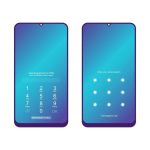Selecting a phone for seniors involves more than just picking one that looks good. It requires thoughtful consideration of usability, accessibility features, and individual needs. As our loved ones age, they often face challenges when it comes to technology. However, the right phone can bridge that gap, enhancing communication and providing peace of mind. This article explores key factors to consider when choosing a phone for seniors, ensuring that you find the perfect device to keep them connected.
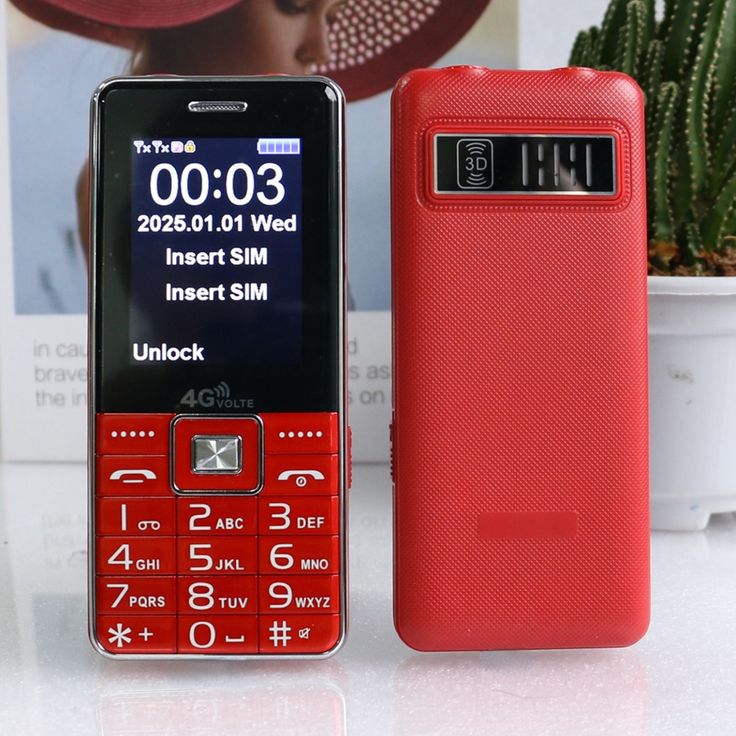
Contents
- 1 Understanding the Needs of Seniors
- 2 Features to Look for in Senior-Friendly Phones
- 3 Types of Phones Available for Seniors
- 4 Recommended Phone Models for Seniors
- 5 Benefits of Senior-Friendly Phones
- 6 Additional Accessories for Senior Phones
- 7 Tips for Helping Seniors Choose the Right Phone
- 8 Customization Options for Personal Preferences
- 9 Support and Education: Empowering Seniors
- 10 Conclusion: Empowering Seniors with the Right Phone
Understanding the Needs of Seniors
When considering a phone for seniors, it’s vital to understand their specific needs and preferences. Many seniors may not be familiar with modern technology, which can make navigating complex interfaces daunting. Phones that incorporate user-friendly designs help eliminate these challenges. Simplicity is key. Look for devices that prioritize larger buttons, clear displays, and intuitive menus. A user experience tailored for ease promotes confidence in using the device regularly.
Additionally, seniors often require features that support their lifestyle. Some may want a phone primarily for communication, while others may want access to apps that enhance their daily lives. Understanding whether the senior needs basic calling and texting functions or if they would benefit from internet access and services like video calls helps guide your decision. Personalizing the choice ensures the device serves its intended purpose without overwhelming the user.
Features to Look for in Senior-Friendly Phones
Phones designed for seniors should include features to match their lifestyle and needs. These features help make communication easier and more enjoyable.
Large Display and Easy-to-Read Fonts
A large screen is fundamental, as it helps seniors see text and navigate their phones with ease. Look for devices with bright displays that provide clear visuals even in different lighting conditions. Adjustable font sizes enable users to customize their reading experience. High contrast settings further enhance readability, making text stand out for users with vision challenges. These elements ensure the phone remains user-friendly, promoting confidence in accessing features.
Simplified User Interface
Senior-friendly phones prioritize simplicity through intuitive interfaces. Ideally, these devices offer minimal icons and clear labels that reduce confusion. A straightforward navigation system makes it easy for seniors to find their way around the phone. It’s best to choose phones with fewer pre-installed apps, as unnecessary clutter can complicate the user experience. Customizable menus allow seniors to arrange their favorite apps prominently, streamlining usage.
Enhanced Accessibility Features
Accessibility stands as a crucial element when selecting a phone for seniors. Features like hearing aid compatibility provide essential support for those with hearing impairments. Voice commands significantly enhance usability, allowing users to operate their phones hands-free. Phones that offer adjustable volume levels also cater to individual preferences and needs. Text-to-speech options and vibration alerts serve as valuable additions, ensuring that seniors receive notifications in various formats.
Emergency Call and SOS Functions
Emergency call buttons or SOS functions prove vital during critical situations. These features enable seniors to contact pre-selected numbers with just a single press, facilitating quick assistance. Some devices even carry the added benefit of sharing the user’s GPS location automatically when the SOS function is activated. This peace of mind can prove invaluable, helping seniors feel more secure while maintaining their independence.
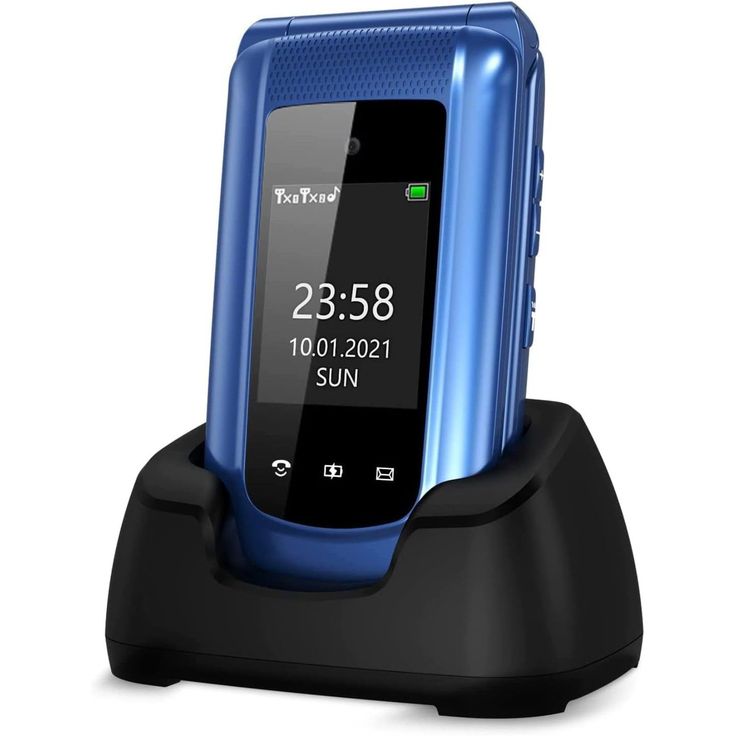
Types of Phones Available for Seniors
In the realm of phones for seniors, you’ll encounter two main types: smartphones and feature phones. Each offers distinct advantages and potential drawbacks. Understanding these differences empowers you to make an informed choice based on the senior’s preferences and lifestyle.
Basic Feature Phones
Basic feature phones are ideal for seniors who need simple communication tools. These phones focus on calling and texting, without many extra features. They have large keys and clear displays. Some models include a basic camera and FM radio. Their long battery life makes them a practical choice for daily use. They are easy to use and often the most affordable option.
Smartphones with Senior-Friendly Modes
Smartphones with senior-friendly modes are perfect for tech-savvy seniors. These phones offer advanced features like large fonts and simplified menus. Brands often include special modes like “Easy Mode” for clearer navigation. The larger screens make video calls and viewing photos enjoyable. They also support apps for health tracking and social connectivity. Some models come with emergency features, such as an SOS button or GPS tracking.
Flip Phones Designed for Easy Use
Flip phones are popular for their simple design and ease of use. They are compact and easy to carry. Opening the phone answers calls, and closing it ends them, which simplifies use. Many have loudspeakers and high-contrast displays for convenience. Some flip phones also include emergency call buttons. They combine simplicity with basic connectivity features.
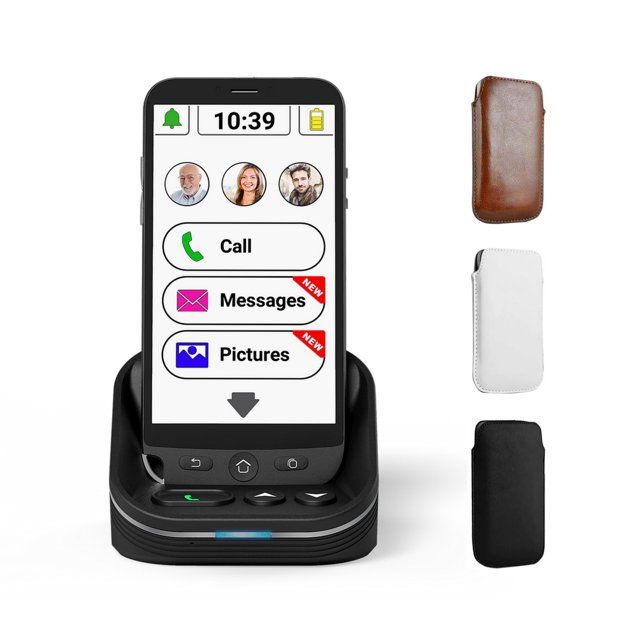
Recommended Phone Models for Seniors
Top Smartphones for Seniors
Smartphones designed for seniors provide advanced features combined with ease of use. Here are some popular options:
- Jitterbug Smart3: This phone is specifically designed for seniors. It features a large screen, simplified menus, and an “Urgent Response” button for quick help.
- Samsung Galaxy A14 with Easy Mode: Samsung allows users to activate “Easy Mode” for a simplified interface with larger icons and fonts. This phone also supports apps for social and health tracking.
- iPhone SE: Known for its compact size and user-friendly interface, the iPhone SE includes accessibility features like voice commands and magnification tools.
Popular Flip Phones for Seniors
Flip phones remain a favorite for seniors due to their simplicity and durability. Here are some top picks:
- Jitterbug Flip2: This phone offers big buttons, powerful speakers, and an emergency SOS button. It’s effortless to operate, making it ideal for senior users.
- Kyocera DuraXV Extreme: This rugged flip phone is durable and water-resistant. It also has an extra-loud speaker and simple navigation.
- Consumer Cellular Link II: Designed for ease of use, this flip phone has a clear keypad, dual displays, and straightforward functionality.
Affordable Feature Phones
Feature phones are great for seniors who need basic communication tools at a low price. Here are some affordable options:
- Nokia 225 4G: This phone offers the essentials like calling and texting, with a long battery life and sturdy design.
- Alcatel Go Flip 4: This device combines functionality with affordability. It includes a basic camera, FM radio, and large buttons.
- Easyfone Prime-A6: Featuring a bright display, enhanced volume settings, and an emergency SOS key, this phone is perfect for budget-conscious seniors.
Choosing the right phone for seniors ensures they stay connected and feel secure. Each model caters to different user needs, from high-tech seniors to those who prefer simplicity.
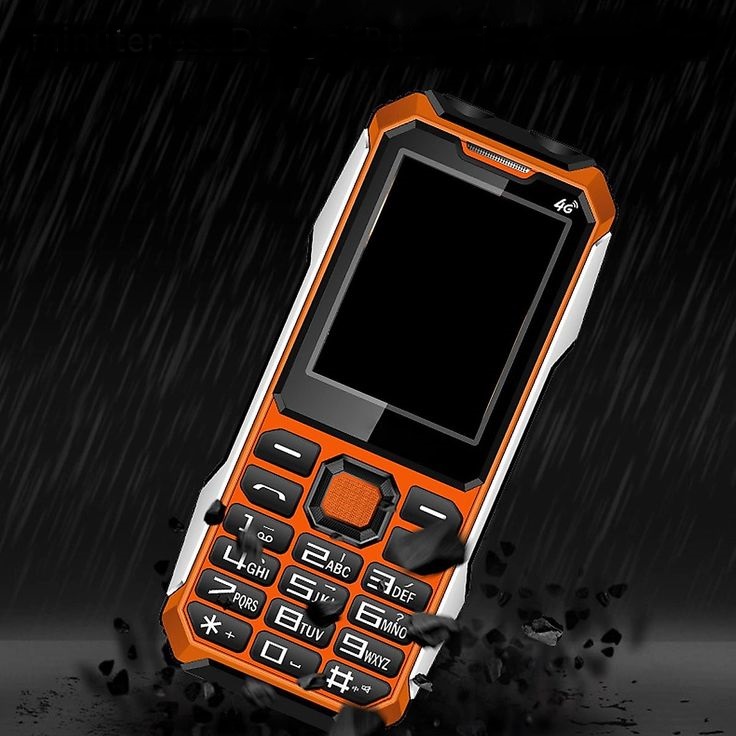
Benefits of Senior-Friendly Phones
Senior-friendly phones provide several advantages that make life easier for older adults. These devices are designed to enhance daily communication, safety, and usability.
Improved Communication and Connectivity
Phones for seniors simplify staying in touch with loved ones. Large screens and clear fonts make texting and calling effortless. Features like video calling and social apps improve social connections. Easy access to health apps also supports wellness monitoring. Seniors can enjoy seamless communication without frustration.
Enhanced Safety and Peace of Mind
Emergency features like SOS buttons and location sharing increase safety. These functions connect seniors to emergency contacts instantly. GPS tracking ensures support during emergencies or if someone gets lost. With hearing aid compatibility and loud volume settings, seniors can hear calls clearly. These features reduce worries and make seniors feel secure.
Ease of Use for Non-Tech-Savvy Users
Simple interfaces help seniors operate phones independently. Minimal icons, fewer apps, and clear labels simplify navigation. Phones with physical buttons or flip designs are great for non-tech-savvy users. Special modes like “Easy Mode” reduce confusion with effortless access to key functions. The thoughtful design ensures easy use for all seniors.
Additional Accessories for Senior Phones
Accessories can enhance the usability and functionality of any phone for seniors. These add-ons ensure convenience, safety, and customization based on specific needs.
Hearing Aid-Compatible Devices
Hearing aid-compatible devices help seniors hear calls clearly without interference. Many phones support this feature. External amplified devices can ensure louder sound output during calls. Headsets designed for seniors can connect to phones seamlessly. Such devices ensure better audio communication for hearing-impaired users.
Protective Cases and Screen Enhancements
Protective cases guard phones against accidental drops and scratches. Look for cases with sturdy designs. Seniors may benefit from cases with tactile grips for easy holding. Anti-glare screen protectors improve visibility and reduce strain on the eyes. These enhancements make phones safer and easier to use daily.
External SOS Buttons and Speakers
External SOS buttons provide quick access to emergency help. These portable buttons pair with senior phones easily. Loud external speakers enhance sound quality, especially for calls or alerts. Adding such features boosts safety and communication ease. These accessories are perfect for seniors seeking added reliability.
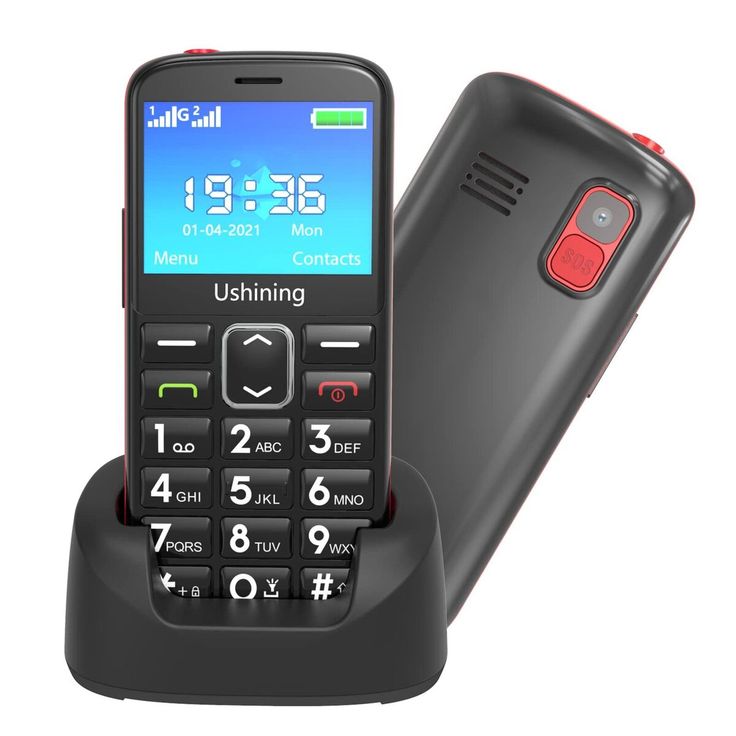
Tips for Helping Seniors Choose the Right Phone
Choosing the right phone for seniors involves understanding individual needs and preferences. Seniors often have specific requirements, so careful consideration is essential.
Assessing Their Specific Needs
Start by identifying the senior’s needs and lifestyle. Some may prefer basic phones for calling and texting, while others might enjoy smartphones for video calls and apps. Consider their vision, hearing, and hand dexterity to choose features like large fonts, adjustable volume, and physical buttons. Evaluate whether emergency SOS functions or health tracking apps are necessary. Understanding these needs ensures the phone suits their daily life.
Providing Hands-On Demonstrations
Show seniors how the phone works before they buy it. Explain key functions like making calls, sending texts, or activating the SOS button. Demonstrate features such as adjusting font sizes, enabling simplified modes, or customizing menus. Let them physically interact with the device to assess comfort and ease of use. Hands-on demonstrations make seniors confident and informed about their choice.
Comparing Plans and Carrier Options
Not all phones work with every carrier. Check carrier compatibility for the selected phone. Compare different plans to find one that fits the senior’s usage. Some carriers offer special plans for seniors with affordable rates and minimal features. Look for plans that cover essential services at reasonable costs. Evaluating carriers ensures affordability and consistent connectivity.
Customization Options for Personal Preferences
Customizing a phone for seniors enhances the user experience. Many smartphones allow users to personalize their settings significantly. This includes adjusting display settings, choosing preferred apps, and arranging the home screen for easy access. Simple customization, like adding favorite contacts to the main page, streamlines the device’s usability.
Some phones come with accessibility features designed for visually impaired users. Options like voice commands, screen readers, and text magnification make technology more accessible. Explore these features and ensure that the phone can adapt to your loved one’s unique needs. Customizable ringtones and alerts can also be beneficial, providing auditory signals that are distinctive and easy to recognize.
Support and Education: Empowering Seniors
Accessibility goes beyond just the built-in features of a phone. Equally important is the support system that helps seniors become comfortable with their devices. Many older adults may need initial training or ongoing assistance from family members or caregivers. By offering patience and consistent help, you can support their smooth transition into the digital age.
Consider various resources such as online tutorials, user manuals, and the customer service departments of manufacturers. Many companies even create user-friendly guides tailored specifically for seniors. These materials ensure that seniors can navigate their phones confidently and understand their features.
Encourage seniors to explore their devices regularly. This practice allows them to discover features and functions at their own pace. As they familiarize themselves with the technology, they build confidence and independence. This gradual learning process prevents frustration and fosters long-term comfort with using technology.
Empowering seniors with the right support and education not only enhances their phone experience but also strengthens their connection with family and friends. It enriches their lives by enabling better communication and access to information.
Conclusion: Empowering Seniors with the Right Phone
Choosing the right phone for seniors involves a comprehensive understanding of their unique needs and preferences. By evaluating the types of phones on the market, identifying essential features, and offering a customizable, supportive environment, you can empower your loved ones to stay connected and informed.
A well-chosen phone serves as both a communication tool and a gateway to the digital world, enhancing their daily lives. Remember, the goal is not just to provide them with a device, but to help them embrace technology with confidence, ultimately enhancing their quality of life. Let the journey begin, ensuring your seniors enjoy the benefits of staying connected.

